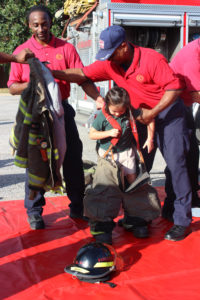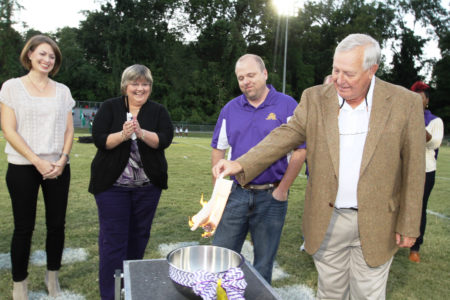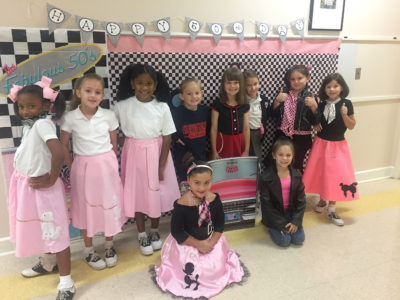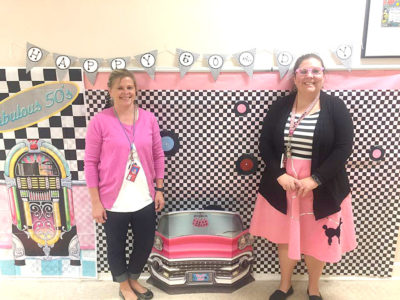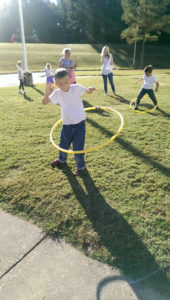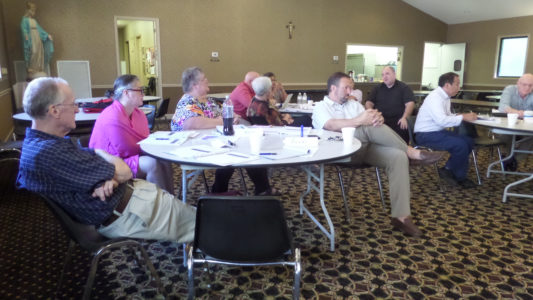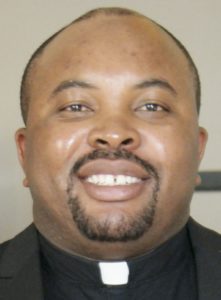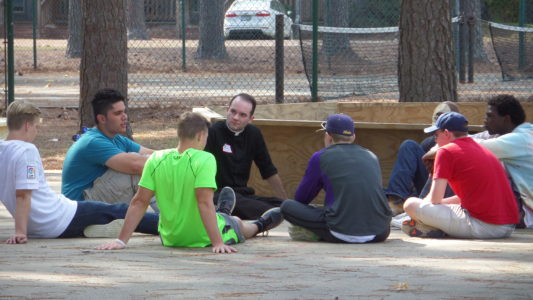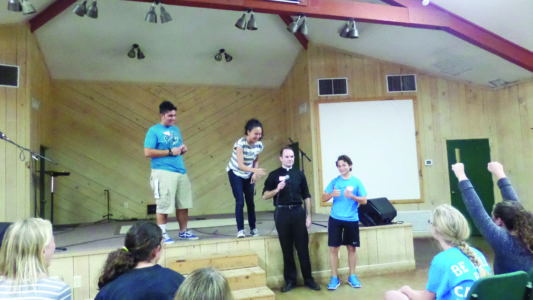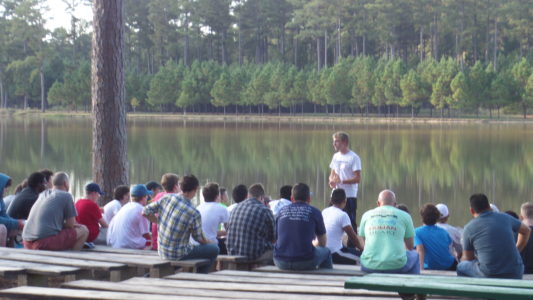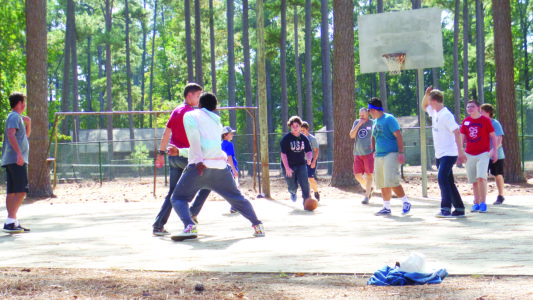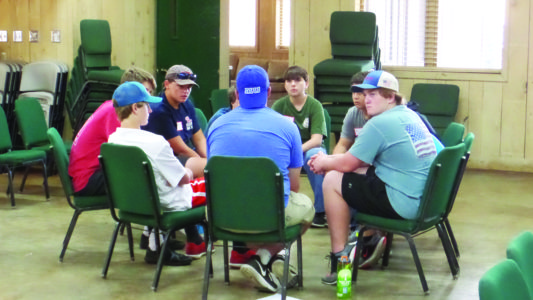PARISH, SCHOOL & FAMILY EVENTS
AMORY St. Helen Parish, book discussion group will read “Glass Castle” by Jeanette Wall for discussion at noon on Monday, Nov. 14. Everyone is invited.
BATESVILLE St. Mary, Thanksgiving fare, Sunday, Nov. 6, sponsored by the Knights of Columbus and St. Mary’s Ladies Club.
BOONEVILLE St. Francis Parish, “Altar of the Dead” is in the narthex in observance of All Souls Day. Bring photos or write the names of your deceased loved ones on cards and place them on this altar.
BROOKHAVEN St. Francis of Assisi Parish will be open from 7 a.m. – 7 p.m. on election day, Nov. 8.
– Knights of Columbus annual spaghetti dinner, Thursday, Nov. 17.
CLEVELAND Our Lady of Victories Parish, blessing of graves at local cemeteries Sunday, Oct. 30 : Delta Heights, 2 p.m.; New Cleveland, 2:40 p.m.; North Cleveland, 3 p.m.
– In observance of All Souls Day, Nov. 2, a special altar is in the entry for people to place mementos or pictures of their loved ones.
– “A Taste of Italy,” Thursday, Nov. 3, from 4:30 – 7 p.m. Featuring homemade lasagna, baked goods. Plates are $10, dine-in or carry-out. Details: 662-846-6273.
COLUMBUS Annunciation parishioners are invited to participate in the “4 Walls Project: Community yard sale” Saturday, Nov. 5, from 7 – 11 a.m. at Hitching Lot Farmer’s Market. Booths cost $25. Details: gtrhomelesscoation.org, 4wasllsgtrhc@gmail.com.
– Annunciation School annual art auction, “A Night at the Museum,” Friday, Nov. 11, at 7 p.m. Tickets can be purchased for $25 at the school office or $30 at the door. Details: acsmarketing@cableone.net.
GREENVILLE St. Joseph Parish, Doe’s dinner and wine tasting, Sunday, Nov. 6, from 5:30 – 7:30 p.m. Featuring Silver Oak and Twomey Cellars. Hosted by the Restoration Committee. Cost is $125 per person.
GREENVILLE Sacred Heart Parish, annual fish fry dinner, Saturday, Nov. 5, from 10:30 a.m. – 2 p.m. Plates are $10 each. Proceeds will go toward the repair of the roof in the convent and some of the sidewalks in front of the church.s
GRENADA St. Peter Parish, youth Mass, Sunday, Nov 6, at 4 p.m. All are invited to attend, especially the youth to volunteer as active participants for parts of the Mass, as altar servers, lectors, gift bearers, etc.
HERNANDO/SOUTHAVEN parish mission at Holy Spirit and Christ the King parishes, Nov. 13-15 beginning with dinner at 6 p.m. The talks will be from 7 – 8 p.m. Father John Van den Hengel, SCJ, a theologian from Ontario, Canada, will be the speaker. The mission is for parishioners from Hernando Holy Spirit, Holly Springs St. Joseph, Olive Branch Queen of Peace, Robinsonville Good Shepherd, Senatobia St. Gregory and Southaven Christ the King.
Holy Spirit will host the sessions in English and Father Zigniew Morawiec, SCJ, will present the talks in Spanish at Christ the King. Childcare will be available.
HERNANDO Holy Spirit Parish, blessing of veterans at all Masses Saturday and Sunday, Nov. 12-13. Veterans are encouraged to attend and wear something to indicate their branch of military service.
– Ladies Association’s frozen casserole sale, Saturday, Nov. 19. Details: Cil Johnson, 662-420-9875.
JACKSON – St. Peter Cathedral Fall Gala, Saturday, Nov. 12, beginning at 6:30 p.m. at the Old Capitol Inn in Jackson. Tickets are $60 per person, $100 per couple. Event includes, food, cocktails, a silent action, live entertainment and a 50/50 pot raffle. Proceeds benefit rectory updates and repairs. Details: Traci Avalon, 601-969-3125.
MADISON St. Joseph School, open house, Sunday, Nov. 6, at 2 p.m.
MADISON St. Francis of Assisi Parish, Ladies Auxiliary’s annual “Make It, Bake It, Fake It” fund-raiser auction, Sunday, Nov. 6.
MERIDIAN St. Patrick Parish, annual Variety Show, Saturday, Nov. 5, at 6 p.m.
– Sale of memorial bricks at $100, each can have up to three lines. Orders deadline is Oct. 31. Details: Kathy in the parish office.
MOUND BAYOU St. Gabriel Mercy Center, Harvest Festival, Saturday, Nov. 5, from 10 a.m. – 2 p.m. Music by Joe Garcia from Rosedale, Delta Boutique, the Thrift Store and the Christmas Store will be open. The Franciscan Sisters are selling raffle tickets, $1 each/10 a book. Details: 662-741-3255.
NATCHEZ St. Mary Basilica, rosary procession, Sunday, Nov. 6, beginning at 2 p.m. at Old Catholic Plot 1 at the Natchez Trace Cemetery.
OLIVE BRANCH Queen of Peace Parish, Fall Fun Fest Saturday, Nov. 5, from 10 a.m. – 5 p.m.
PEARL St. Jude Parish, special Mass of Remembrance, Wednesday, Nov. 2, at 6 p.m. Those who have lost a close family member in the past year call the parish office to give their name.
– Chili Cook-off, Saturday, Nov. 12. Deadline to register is Nov. 7.
– Parishioners are encouraged to participate in the Christmas “Box of Joy” which will be sent to Haiti, Guatemala or the Dominican Republic. Boxes need to be returned between Nov. 6-13 to the parish hall.
‘Vintage Hollywood’
JONESTOWN The Jonestown Family Center and the Spring Initiative are sponsoring “The Delta Ball: Vintage Hollywood,” Saturday, Nov. 12, from 7 – 11 p.m. Tickets are $75 each. Judge Joe Brown of the television show “Judge Joe Brown” will be the master of ceremony. Details: 662-358-4335.
In Memoriam
CHICAGO, Ill. – Brother Robert (Bob) McGovern, CFC, died Wednesday, Oct. 12, in Chicago. He was 72 years old. Brother McGovern served at Holy Child School in Canton from 1998-2001. He also was part of the Thea Bowman Spirituality Center.
Save the date
MADISON – Matthew Kelly will come to the Jackson area on Saturday, March 11, 2017, from 2 – 6 p.m. at the Madison Central High School Auditorium. The facility seats 1,000 people. Look for more details in upcoming Mississippi Catholic editions.
